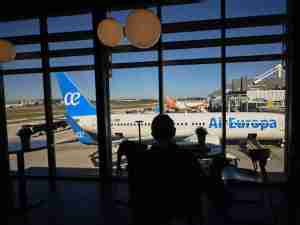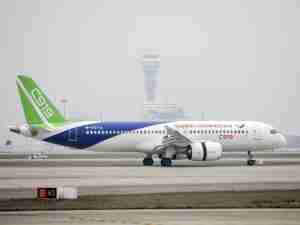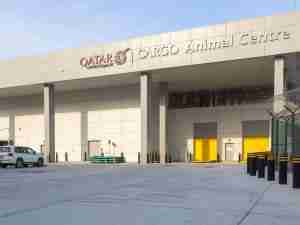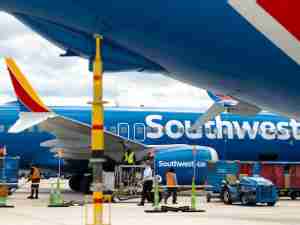The outgoing Federal Aviation Administration chief believes the government has dramatically reset its once-troubled relationship with Boeing Co. and that new safety processes put into place will prevent the kind of failures that led to the fatal 737 Max crashes.
Steve Dickson, who will step down on Thursday, said his interactions with Boeing executives are very different from when he took office in 2019 when the Max was grounded.
“We are demanding more transparency and completeness and rigor out of their processes,” Dickson said Tuesday in an interview with Bloomberg News and Reuters. “They have been providing that and I think you see that in our interactions with them.”
Dickson also warned that radio spectrum issues like the recent crisis over 5G wireless airwaves will crop up again as other companies seek to utilize more airwaves, said the agency’s no-tolerance rule on unruly airline passengers should continue even if the government lifts its mask requirement and said he was encouraged by China-U.S. cooperation in an investigation into the March 21 airliner crash in that nation.
Dickson announced on Feb. 16 he was stepping down about halfway through his five-year term. He based his decision on a desire to spend more time with his family, he said in the interview. Because his duties required him to stay in Washington, he was isolated from his family during most of the pandemic.
Acting Administrator
The agency announced on Saturday that its newly appointed head of aviation safety, Billy Nolen, will become the acting administrator later this week when Dickson leaves. FAA Deputy Administrator Bradley Mims will also expand his duties, assuming a greater role in managing the agency’s workforce and U.S. airports, the agency said in a press release.
Dickson was sworn in on August 12, 2019, just months after the two Max accidents as the plane was grounded around the world and the agency faced questions for approving a design flaw linked to the crashes.
He personally chastised Boeing’s then-Chief Executive Officer Dennis Muilenburg in December 2019 for being too aggressive in trying to return the Max to service. Just weeks later, Muilenburg was ousted from the company.
Since then, the company’s new leaders have been more open in their conversations with them and have not pressured the agency, Dickson said.
Some of that is evident in Boeing’s public statements, “but the interactions that we have day to day with them are, I believe, much different than what I found when i got here,” Dickson said.
Dickson declined to comment on a jury decision last week acquitting a Boeing pilot on charges he deceived the FAA about the Max, but said processes mandated by Congress and others the agency is imposing will ensure that design lapses are much less likely in the future.
Tumultuous Period
Dickson oversaw one of the most tumultuous periods in FAA history. In addition to the Max, he had to deal with a global pandemic within months of taking office that dramatically cut air travel and caused hundreds of Covid-19 cases at FAA facilities.
Late last year and in January, he also had to work with wireless companies because their new 5G service risked interfering with critical aircraft safety equipment.
Potential disruptions of the aviation system were averted after wireless companies agreed to postpone switching on broadcasts near runways and to lower power levels and the FAA began tests to determine the extent of potential problems.
The FAA has begun discussions with other companies that want to use spectrum that may interfere with aviation uses to avoid the kind of controversy that 5G created, Dickson said.
Additional 5G radio waves and separate bands located near those used by long-range radars are expected to be auctioned off in coming years. Dickson didn’t name the companies the agency has been working with.
While dealings with AT&T Inc. and Verizon Communications Inc. on 5G were at times “painful,” they became more productive as each side agreed to share data, he said.
“We need to have a process like that’s in place on the front end,” Dickson said. “I hope that since we’ve been through this journey, we’ve learned a lot. This won’t be the last spectrum issue that we encounter.”
The Covid-19 pandemic combined with growing political tensions in the U.S. combined to create skyrocketing increases in violence on flights starting in 2021 as the U.S. imposed a mask mandate for all people on public transportation.
There were almost 6,000 reports of unruly passengers in 2021, dwarfing any previous year. While the rate of such incidents has declined since early last year, it continues to be well above previous years. FAA last year imposed a zero-tolerance policy, which has resulted in more than 400 civil enforcement actions.
The White House earlier this month extended the mask mandate through at least April 18 but is considering whether it should be eased.
The FAA’s zero-tolerance policy will continue, said Dickson, a former airline pilot.
“There’s never any excuse for violence or threats of violence on an airplane,” he said. “Passengers need to follow crew member instructions. Regardless of what happens with the mask mandate, I think this is something that we need to keep in place.”











